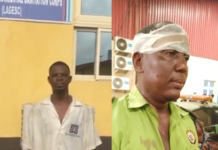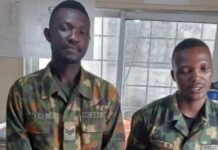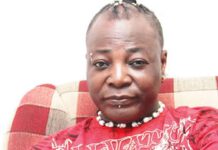Lagos State Governor Babatunde Fashola yesterday said that Lagos State was yet to receive the experimental Ebola drug and a kobo out of the N1.9 billion Federal Government intervention fund.
Speaking further, Fashola noted that the health workers’ strike would have worsened the situation but for a prompt intervention.
“The report reaching me about two hours ago was that some of the health workers at the centre felt unappreciated and decided to stop work because of media reports that they were not working effectively to save the lives of the victims. We do not need that at the moment. While we sympathise with the victims, the health workers are doing their best to care for the victims. We sympathise with the victims who were affected by the virus, we understand the trauma and concern the family members are going through. But when all of that is taking into account, it is not true that that we are not taking care of the patients,” Fashola said.
On the reality on ground, he stated :”We are gaining capacity daily. This is not what we expected and it is not what we planned for and getting people who are sufficiently knowledgeable and skillful to go into the isolation centre is quite challenging. It is a matter of monumental courage for those people who have signed up and we commend them for that.
“There is personnel capacity issue of those who can go into the centre and care for the patients, in a way that they will not be infected by the virus. The Personally Protective Equipment, PPE, they use is very real so that they are protected. The issue we have now is that teams are working flat-out and therefore there will be no opportunity to segregate any patients. There will be no such opportunity.
“My appeal to the people is that more health workers should sign up and from what I was told by experts, even if one is the best physician in the world, the person cannot enter the isolation ward. He or she has to be trained on how to kit up and get out of the centre and the training takes between five and seven days to achieve.
“People must understand the process required. And when it appears to the people that nothing was being done, it was because we are still building up capacity at the facility. We are better off today than 10 days ago. We know that it is a complain that comes out of empathy but it is a complain that does not focus on the reality of what is going on.”
Fashola who described the reports as “disheartening”, also cautioned the media against sensational reports on the Ebola virus disease.
On the N1.9 billion intervention fund approved by the Federal Government to fight Ebola in Nigeria, Fashola said, “At the moment, we are yet to receive any money. What we have done is to work with our resources. The isolation centre and other facilities were done by our personnel working with officials of the federal health facilities in Lagos.
“It is not a money issue now. At the moment, it is a personnel, control, knowledge and system issue. It is only when we have put all these into place that we can now beginning to say how much does it cost. It is not money issue. It is not the kind of money that Lagos State government cannot afford. Every help from the Federal Government will be useful. I think what is important is not the money but the fact that even President Goodluck Jonathan has shown some concern to call all the governors and commissioners of all the 36 states to get a full briefing on the risk, process and others.
“I think that is important and that is the kind of leadership that one will expect in this kind of circumstances.”
Fashola said there is little silver lining since many people who had contacts with victims were not infected.
“At the moment, 61 people have been certified negative and they have been freed. This is a virus that will run a maximum of 21 days. What we must do is people show some signs of illness should come in very early so that we can continue to hydrate them, give electrolyte balance so that their nervous system do not go into shock and wherever it is necessary to provide antibiotics for patients; and their body can fight the virus which in the event last no longer than 21 days,” he said. [Vanguard]





